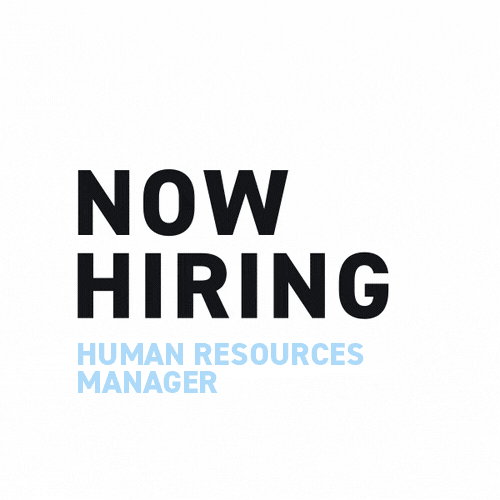Human Resources Manager Job Description
Human Resources Managers take care of your company’s most valuable assets: its people. Work simply will not get done without the workers behind the corporate name, so Human Resources Managers have a vitally important role in taking care of the people behind the business.
The Bureau of Labor Statistics (BLS) says Human Resources Managers “oversee the recruiting, interviewing, and hiring of new staff; consult with top executives on strategic planning; and serve as a link between an organization’s management and its employees.” The Human Resources Manager does all of these things and more.
These professionals plan and implement policies governing humans in the workplace. They create the rules that keep corporations from running afoul of workplace regulations and create practices that help employees get along with each other. The Human Resources Manager is typically responsible for creating training programs on sensitive subjects like diversity or sexual harassment.
Some of the duties of a Human Resources Manager include:
- Administrative tasks like updating job descriptions for company positions
- Recruiting functions including sourcing and interviewing, depending on the size of the company
- Organizing and conducting employee orientation and onboarding
- Documenting infractions, conducting reviews, and hiring and firing staff
- Building training and administrative materials like HR manuals or corporate policies for paid time off, vacation, dress code, and more
- Conducting activities designed to engage employees, whether training, staff surveys, or overseeing content on the corporate intranet
- Overseeing payroll, budgets, and pay structure revisions
- Coaching staff and management and handling employee grievances or corrective actions
- Managing the employee benefits program and making recommendations for improvements
- Maintaining compliance with state and federal labor laws, handling investigations, keeping records, and even representing the company at legal proceedings
- Attending continuing education workshops to keep skills sharp
The Human Resources Manager handles all of these things at small companies, but in larger companies, could delegate some of these responsibilities to other team members. Or they could outsource specific areas like payroll or recruitment to third-party partners.
Human resources management is one of the fastest growing fields today. The BLS says demand for these professionals will rise another 9% by 2024. What skills do these professionals need to stay at the top of their game in the coming years?
Skills and Competencies Needed for the Human Resources Manager
The Human Resources Manager needs skills in management and leadership, including managing competitive benefits packages, an understanding of the legal issues governing hiring, workers’ compensation, employee rights, and more. Beyond understanding the legal ins and outs of people management, you’ll also need skills in:
- Conflict resolution
- Patience and diplomacy
- Troubleshooting
- Strategic thinking
- Goal setting
- Multitasking
- Project management
- Time management
The Human Resources Manager must also have a finely honed set of interpersonal qualities and skills in addition to analytical and problem-solving expertise. This means these professionals must have skills that include:
- A love of people
- Listening
- Communication
- Flexibility
- Critical thinking
- Reporting
- Data research
- Empathy
- Self-motivation
- Sense of humor
- Teamwork
- Trustworthiness
Today’s Human Resources Managers must be just as at home researching labor laws as they are counseling a troubled employee. In some ways, this may make them a purple unicorn, but first and foremost, these professionals capitalize on their knack for managing people.
Suggested Software Proficiency
A Human Resources Manager spends a lot of time documenting HR information and sharing it with teams. Virtually all of the tools they use are digital and imperative to the job. Regulatory laws require documentation of every HR encounter. Human Resources Managers may handle one system for payroll and another for benefits management. There are also employee engagement tools on the market today.
Applicant tracking systems (ATS) are useful for recruitment and hiring. You can use them to post jobs, update your careers page, or conduct interviews. These platforms automate emails, texts, interview scheduling, and more to cut down your workload. This may be different from the talent management software (TMS) that typically handles hiring, onboarding, training, and retention.
Most Human Resources Managers use some sort of human resources information software (HRIS) to help streamline tasks such as new hire paperwork, payroll, or document management.
They may use a corporate instant messaging platform and certainly will need to know the standard Microsoft set of office tools like Word, Excel, and PowerPoint. They should also have proficiency in social media platforms like LinkedIn for recruitment or Facebook and Instagram to attract candidates or research applicants.
Generally, Human Resources Managers should be comfortable with cloud-based technologies to help centralize data and functions across an organization. The software tools used by these professionals generally depend on their job functions and the size of the company.
Find Your Human Resource Managers Here
Human Resources Managers are some of the most important parts of any team. Artisan Talent works with these professionals to place them in positions with companies just like yours. If you are looking for a Human Resources Manager Job Description contact Artisan Talent. Whether you are looking for a Human Resources Manager to professionalize your small company or seeking a leader for a large enterprise organization, Artisan Talent can help. Start the conversation.

